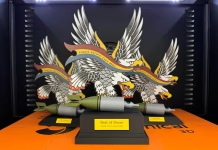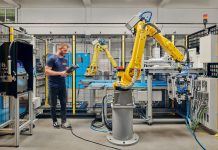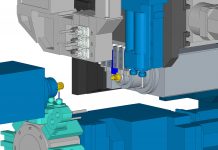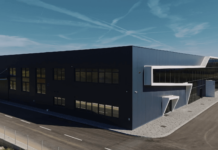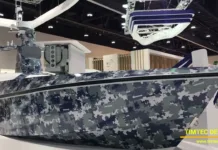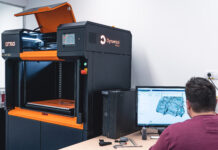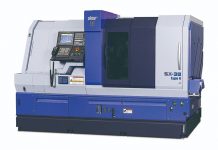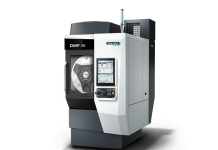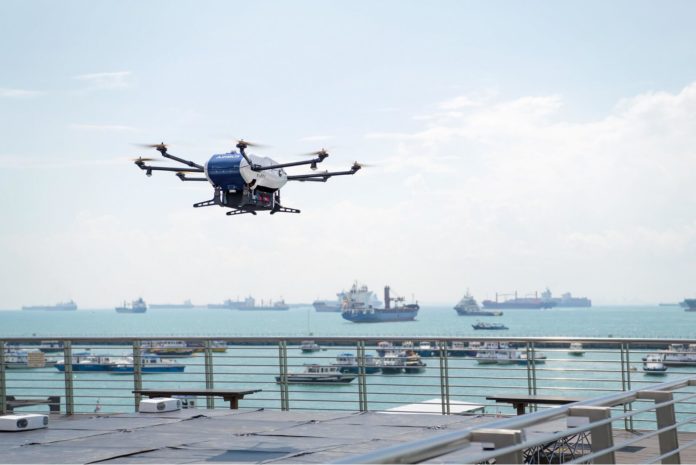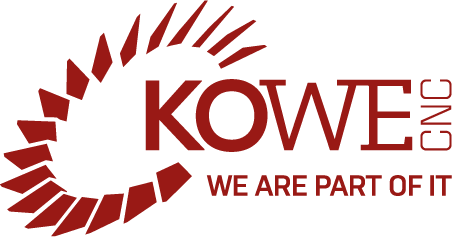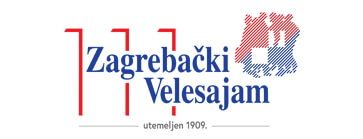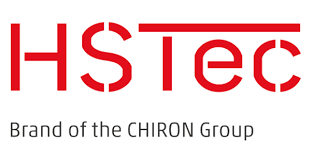Unmanned aerial vehicles, aka drones, are increasingly being manufactured and trialled for many applications across industries, as the technology seems poised to hit the mainstream.
Drones are becoming cheaper and easier to build. They are often small, remote-controlled and can cost anything from under £40 to several thousands of pounds.
Earlier this week, aerospace giant, Airbus announced it has commenced shore-to-ship drone trials in Singapore with its Skyways parcel delivery drone.
This marks the first time drone technology has been deployed in real port conditions to deliver a variety of small, time-critical maritime essentials to working vessels at anchorage.
The delivery flight was made to a vessel 1.5 km from the shoreline of Singapore’s Marina South Pier, and it carried 1.5 kg of 3D printed consumables.
After landing on the ship deck and depositing its cargo, the unmanned air vehicle returned to its base, with the entire flight taking less than 10 minutes.
The use of unmanned aircraft systems in the maritime industry could speed up deliveries by up to six times, lowering delivery costs by up to 90%, reducing carbon footprint, and significantly mitigating risks of accidents associated with launch-boat deliveries, according to Airbus.
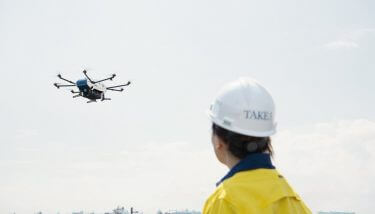
Advanced infrastructure in the sky
Skyways is an experimental project, one that aims to develop an unmanned airborne infrastructure solution and address the sustainability and efficiency of unmanned aircraft in large urban and maritime environments.
It will soon be commencing another trial phase delivering air parcels autonomously in an urban environment, at the National University of Singapore.
Heavy lift drone development at Boeing
Last year, US aerospace manufacturer Boeing revealed a prototype delivery drone able to carry loads to difficult to reach destinations.
The prototype drone, called a CAV (cargo air vehicle) measures at 15 feet long, 18 feet wide and 4 feet tall, and weighs 747 pounds.
Its payload capacity is impressive, it’s designed to lift heavy loads, and is able to carry up to 500 pounds (227kg) of cargo.
The aerospace giant envisages that once it has perfected its design, the drone could be used to deliver heavy cargo not just around cities, but also to remote locations such as oil rigs.
It is also probable that such a drone could be employed in war-zones carrying equipment to soldiers in areas too dangerous for standard craft to fly.
Industrial applications
Drones are easy to manoeuvre, so tasks like inspecting and repairing equipment, or mixing chemicals where it might not be safe for humans to do, make the tech a good option.
Or, if a part fails on a production line, the aerial vehicles could detect such failures beforehand and report back to control systems or the factory manager, which could prevent downtime.
They could also record inventory in warehouses or distribution centres, scan large manufacturing plants and agricultural land for quality control purposes, and transport components to remote locations like offshore wind farms.
Smart cities will embrace drones
The main goal and aim of any smart city design is to provide efficient infrastructure and services at reduced costs, and the reality of the ‘smart city’ is fast approaching. Connected vehicles, buildings and numerous sensors that could continuously collect streams of data will define the urban areas of the near future. Perhaps even sooner than we think.
Drones could play a role in the newly emerging smart city; scanning, recording and logging activity in urban areas. For example, alerts from IoT sensors could inform drones that medical supplies are needed at a specific location, they could be used for traffic and crowd management, or drones could offer back-up surveillance – privacy issues and public confidence in the technology is of course, another matter.
The benefits of drones are numerous for the maritime, military and industrial sectors. For smart cities, the tech offers monitoring, data collection and the potential for reactions to anomalies where needed.

